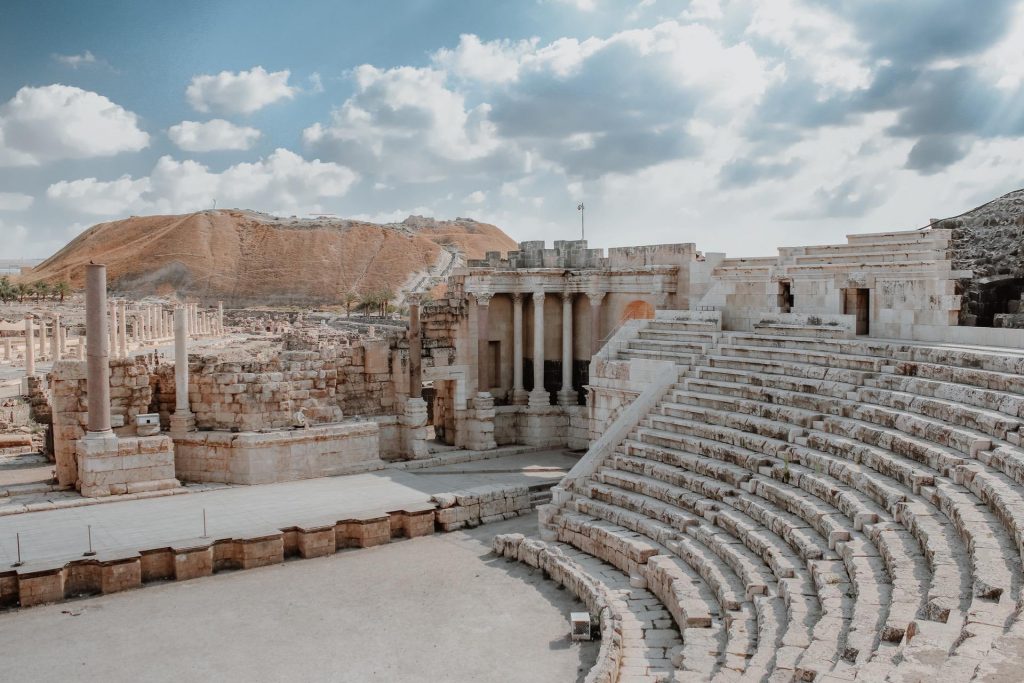
Time in Capernaum allowed that Jesus could stay at Andrew and Peter’s house. Mark records, “As soon as they left the synagogue, they went with James and John to the home of Simon and Andrew. Simon’s mother-in-law was in bed with a fever, and they told Jesus about her. So he went to her, took her hand and helped her up. The fever left her and she began to wait on them.” Matthew is much more succinct in his report, writing, “When Jesus came into Peter’s house, he saw Peter’s mother-in-law lying in bed with a fever. He touched her hand and the fever left her, and she got up and began to wait on him.”
We know that where Jesus traveled (in His early ministry especially), crowds of disciples followed. Mark’s account allows that we know that James and John were there, and in all likelihood so were Peter and Andrew, and probably many more. Yet in spite of their numbers, the future apostles and early disciples are not yet Spirit-filled, so they can’t address Peter’s mother-in-law’s fever themselves. Later, Jesus will give them authority to heal, and later still give them His Spirit to so act. But for now, they are limited to telling Jesus about her, which they apparently do immediately.
It is to the disciples credit that they did speak to Jesus about Peter’s mother-in-law. We should talk to God about the needs of all we encounter. Talking to God about a matter is always useful, no matter how spiritually immature we may be in the Kingdom of God. Our dialogue with Him (our prayers) are always powerful – not because there is power in our words or because God owes us a response, but because there is power in the One we speak to, and it is in His nature to be merciful.
Hearing of the need, Jesus does respond. A miracle takes place. Peter’s mother-in-law is healed. Yet as far as we know, no words were said during that miracle. Jesus just touches her. Her fever leaves. More than that, her strength to serve immediately returns.
Long before this happened, the Psalmist wrote, “For you created my inmost being; you knit me together in my mother’s womb. […] My frame was not hidden from you when I was made in the secret place. When I was woven together in the depths of the earth,
your eyes saw my unformed body.” God makes each person and knows every hair on their head. It is He who forms each one, and He knows everything there is to know about each of us. So it is a very small thing indeed for Him to heal. He does not even have to speak. A simple touch from Him is enough, both to heal, and to strengthen.
Scripture leaves to the imagination what the lasting impact of Jesus’ touch was on Peter’s mother-in-law. But one doesn’t need much imagination to picture her following Jesus with the other women who followed Christ, even to standing there at His crucifixion years later. God’s touch is impossible to forget, though the fever and weakness it removed be long forgotten.
To think that a a life could be so dramatically changed for the better merely because the disciples noted to Jesus that this lady was lying down ill – that a life was so changed just because they mentioned it to Him – is astonishing. But so it is. Our conversation with God often has much more of an impact than we could imagine. Because God does hear us, and because God is merciful.
Amen.
Spiritual submission is spreading my case before the Lord and asking Him to deal with it as He sees best.
AW Pink
APPLICATION: Intentionality
Who are you bringing to God in prayer? What do you think God will do in response?









